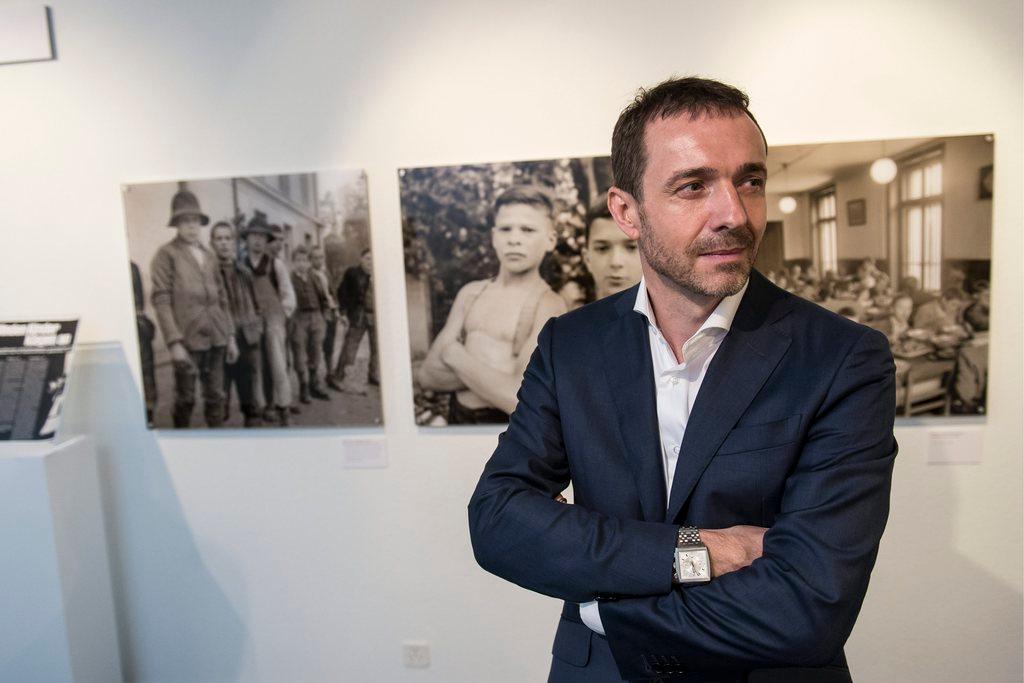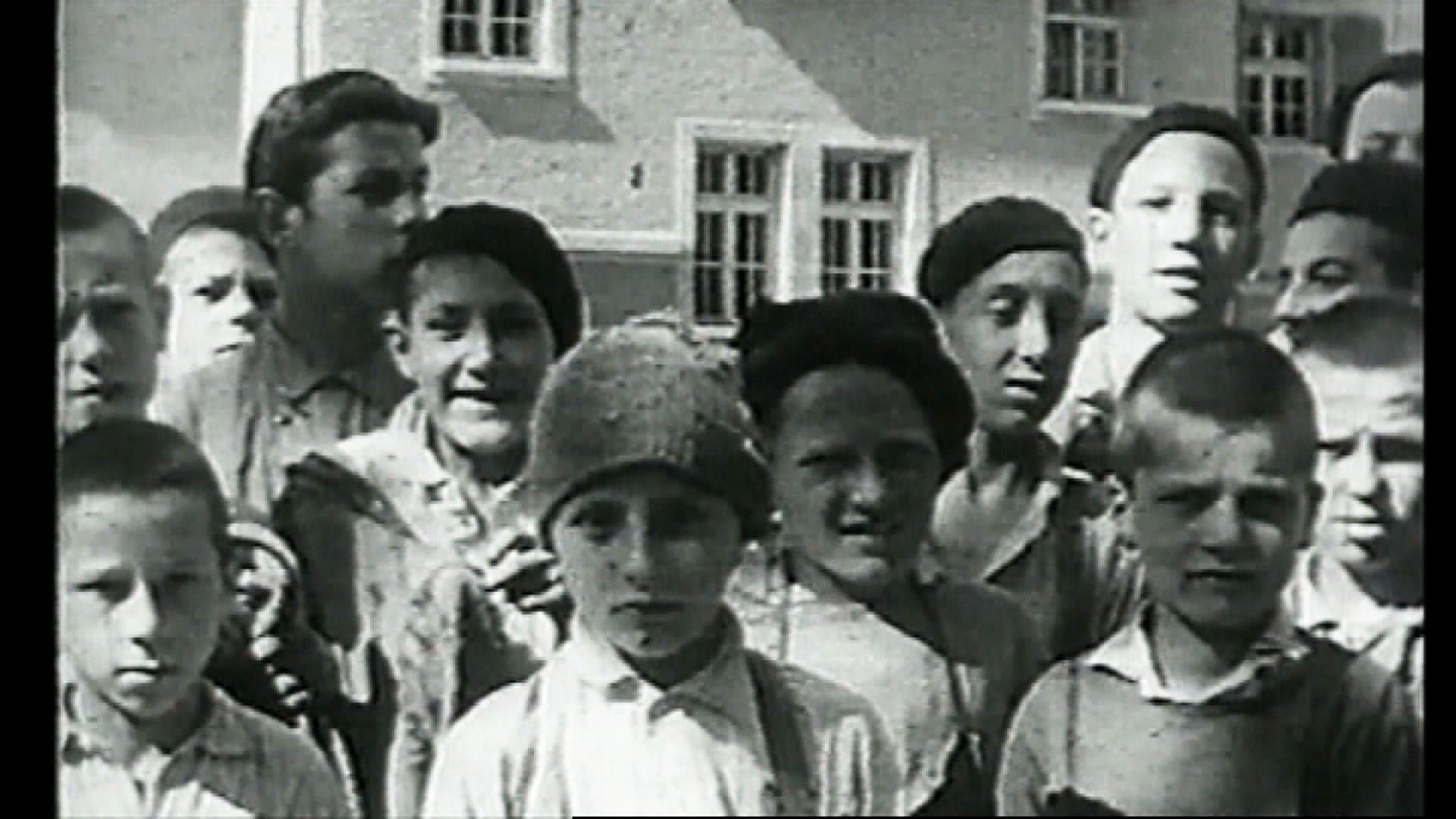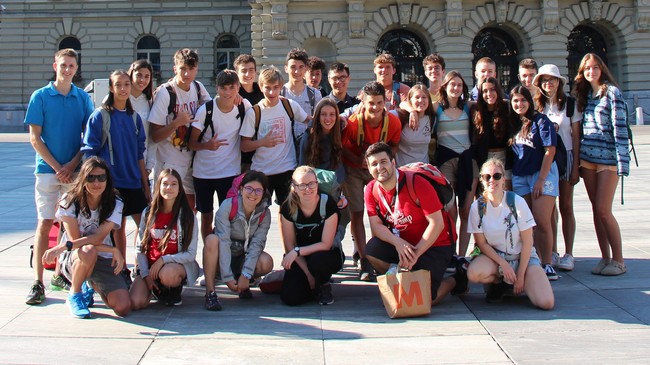
Champion of abuse victims considers government deal

The organiser of an initiative to get compensation for victims of forced institutionalisation says he could imagine accepting a cabinet counterproposal. This offers almost half the amount of money than originally sought, but elderly victims would receive it sooner.
Guido Fluri, a former boys home resident turned multimillionaire, told the Tages-Anzeiger and Der Bund newspapers on Saturday that if parliament approves the counterproposal next week, he would “in all likelihood” withdraw the initiative. He added, however, that the decision would have to be taken by the initiative committee as a whole.
In 2014, Fluri and the committee gathered 110,000 signatures supporting a proposal to establish a CHF500 million ($510 million) compensation fund. The cabinet has offered CHF300 million, saying there are just 12,000 surviving victims of forced administrative policies compared with the 15,000 estimated by the initiative committee.
This amount of compensation is a “lower limit”, for Fluri. “If parliament weakens the law and bargains the CHF300 million down even more, we’d go ahead with the initiative and force a national vote,” he said.
Fluri, 49, said one reason to accept the counterproposal would be that the victims – many of whom are old and in poor health – would receive compensation, estimated at CHF20,000-CHF25,000 per person, sooner than if the issue were to go to a national vote.
Institutional abuse
Fluri’s mother was 17 and unmarried when he was born. She was diagnosed with schizophrenia shortly afterwards and he ended up in a boys home where he says he was locked up and suffered punishments, “although I wasn’t as systematically mistreated as other children, physically and psychologically”.

More
Church makes gesture for past child labour victims
Switzerland has a shocking list of victims of institutional abuse, some of which continued until recently.
In addition to children like Fluri, until the 1950s it was common for poor Swiss families to give or sell their children to farmers. These so-called Verdingkinder (“discarded children”) suffered physically and emotionally. Some farmers did not feed them properly, which affected their growth and development. Many were beaten and some were sexually abused.
Forced sterilisations took place in Switzerland throughout the 20th century. According to a 1991 study by the Swiss Nursing School in Zurich, 24 mentally disabled women aged 17-25 were sterilised between 1980 and 1987.
In addition, the story of the Swiss gypsy people, known as the Jenisch, exposed a calculated policy of Nazi-style eugenics carried out behind closed doors well into the 1970s.
In 1926, the Swiss government approved a project set up by the children’s charity Pro Juventute intended to eliminate vagrancy. Entitled Kinder der Landstrasse (“Children of the Road”), it effectively sanctioned child abduction: police seized more than 600 Jenisch newborns and infants from their mothers without warning and carted them off to orphanages run by Pro Juventute.
In 1972 a Swiss magazine exposed the project, to universal public outrage. Pro Juventute closed the operation down a year later, and yet, according to official reports, there were about a hundred victims of Kinder der Landstrasse still incarcerated in clinics and institutions in 1988, after the Swiss government had formally acknowledged its moral, political and financial responsibility for the abductions and apologised to the Jenisch. Pro Juventute is still in operation.
Apologies but no compensation
In 2010, the then Justice Minister Eveline Widmer-Schlumpf apologised to young people sent to prison between 1942 and 1981 without a trial and despite having committed no crime.
She was speaking at a commemorative event at Hindelbank women’s prison, canton Bern, where up until the late 1960s girls aged 14-18 were placed for “administrative care” for no other reason than a recommendation from the guardianship authorities.
Reasons often included “depraved lifestyle”, “licentiousness” or “alcoholism”. Many cases involved young girls who got pregnant, were then shunned by their embarrassed families and ended up being forced to give up their babies for adoption.
In 2013, Widmer-Schlumpf’s successor Simonetta Sommaruga apologised on behalf of the cabinet for the harm suffered by Verdingkinder, women and girls subject to forced sterilisation and those locked up under the “administrative care” legal provision.
“For the harm that was done to you, I ask your apology in the name of the government of the country sincerely and with all my heart,” she said. “We cannot look away any longer. Because that is exactly what we have done for much too long.”
Neither apology included or referred to any financial compensation.
A long road
1981: following the 1974 ratification of the European Convention on Human Rights, Switzerland stopped all practices that allowed for internment (institutional or penal), infringement on the right to procreate (castrations or forced abortions) as well as forced adoption or family placements.
1999: parliamentary initiative for compensation for victims of forced sterilisation.
2009: parliamentary initiative for redress for moral wrongs to minors placed in educational institutions.
2009-2013: the travelling exhibition “Stolen Children” presents 300 witness accounts and photos across Switzerland.
2011: parliamentary inquiry into the rehabilitation of people placed under administration; another calls for an examination of the historical conscience and the excuses of the authorities.
March 2014: parliament adopts the rehabilitation law, launches a research project and guarantees victims access to their files.
July 2014: The Round Table establishes a fund for immediate aid to victims. To date, 650 requests for assistance have been received, including 450 which have been examined and 400 which have received funds totalling CHF3 million, around CHF8,000 per victim.
December 2014: registration of the popular initiative for compensation calling for the creation of a CHF500 million compensation fund, signed by 110,000 people.
January 2015: the government recognises the principle of compensation and announces a counter-project to be delivered by summer.

In compliance with the JTI standards
More: SWI swissinfo.ch certified by the Journalism Trust Initiative
















![The four-metre-long painting "Sonntag der Bergbauern" [Sunday of the Mountain Farmers, 1923-24/26] had to be removed by a crane from the German Chancellery in Berlin for the exhibition in Bern.](https://www.swissinfo.ch/content/wp-content/uploads/sites/13/2025/12/01_Pressebild_KirchnerxKirchner.jpg?ver=cb688ed5)














You can find an overview of ongoing debates with our journalists here . Please join us!
If you want to start a conversation about a topic raised in this article or want to report factual errors, email us at english@swissinfo.ch.